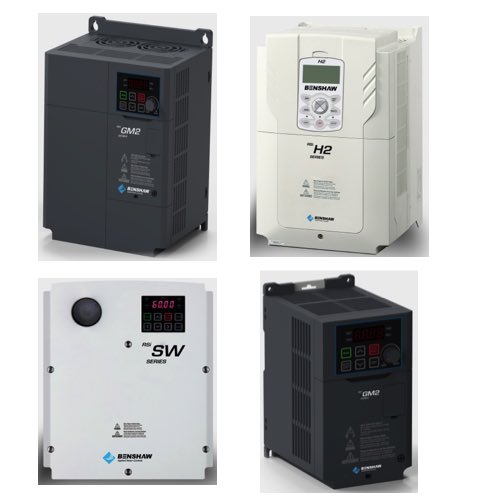Benshaw VFDs

RSP Supply carries a full line of Benshaw three-phase Variable Frequency Drives (VFDs) ranging from 0.5 HP to 800 HP. Designed for precision speed control, energy efficiency, and long-term reliability, Benshaw VFDs deliver exceptional performance in demanding industrial environments such as manufacturing, mining, oil and gas, HVAC, and water treatment.
Benshaw VFDs are built to handle the toughest motor control challenges. Constructed with durable components and engineered with advanced thermal management, these drives perform reliably even in harsh environments exposed to heat, dust, and moisture. Their rugged design and dependable performance make them ideal for applications that require consistent, efficient motor operation under continuous load. Beyond their durability, Benshaw VFDs integrate seamlessly with industrial automation systems. They support a range of communication protocols, including Ethernet, Modbus, and Profibus, allowing smooth connectivity with PLCs, SCADA systems, and other factory control networks. This interoperability ensures operators can monitor, adjust, and optimize motor performance directly from their control systems.
FAQs
Q: What are the horsepower ranges of Benshaw VFDs?
Benshaw offers three-phase VFDs ranging from 0.5 HP to 800 HP for a wide variety of industrial and commercial motor applications.
Q: What communication protocols do Benshaw VFDs support?
Benshaw VFDs support Ethernet, Modbus, and Profibus, ensuring compatibility with PLC, SCADA, and other industrial control systems.
Q: Are Benshaw VFDs suitable for harsh environments?
Yes. Benshaw VFDs are built with robust enclosures and thermal protection, allowing reliable operation in dusty, hot, or wet industrial settings.
Q: What industries use Benshaw drives?
Common industries include manufacturing, oil and gas, mining, HVAC, and water and wastewater treatment facilities.
Q: Do Benshaw VFDs help improve energy efficiency?
Yes. By controlling motor speed and torque precisely, Benshaw VFDs significantly reduce energy consumption and mechanical wear on equipment.
Why Buy Benshaw VFDs from RSP Supply
RSP Supply is your trusted source for Benshaw Variable Frequency Drives. We offer a complete range of VFD models for precise motor control, backed by expert support, competitive pricing, and fast shipping to keep your operations running efficiently.

